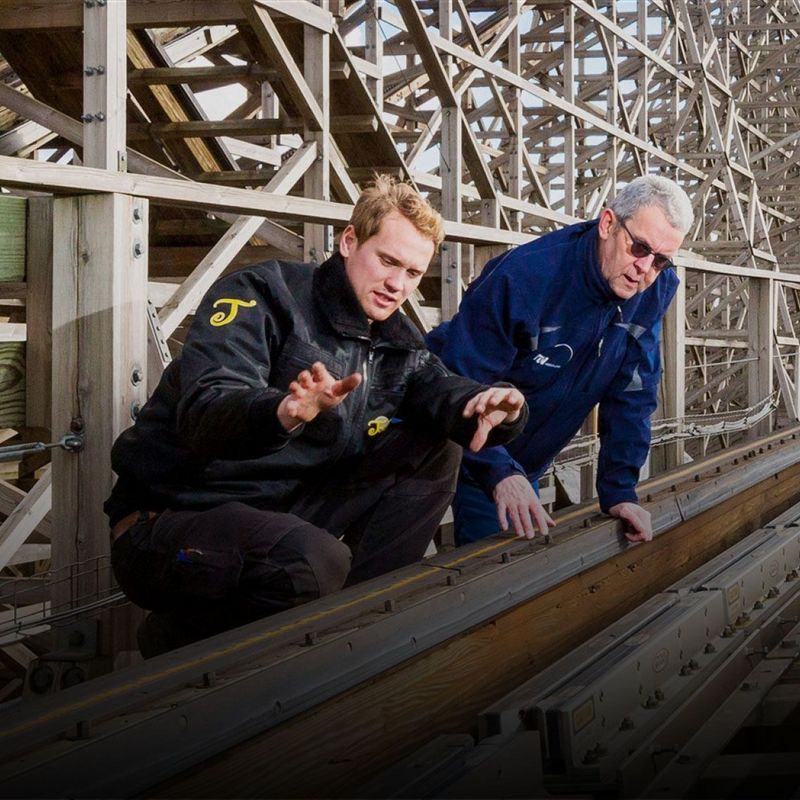8 September 2016
Peter Birkner is an expert in the energy industry and also uses his expertise to support young and innovative start-ups. In the first part of the interview he explains why large corporations struggle to implement new trends and how a change in corporate culture itself can be achieved.
#explore: How innovative is corporate culture in Germany?
Peter Birkner: Very - at least when it comes to small businesses and SMEs. It just has to be, as for these companies standing still means going backwards and they would otherwise immediately lose competitiveness. Large structures which are based on traditional success models and which tend to focus on managing previous success struggle rather more. This is because – following Schumpeter’s theory of “creative destruction” - innovation also always means to some extent giving up things that you’ve been doing for a period of time and which have made you successful and allowed you to grow. That is not always easy. I would even go as far as to say that managers in companies with large structures often act in harmony with existing systems and are reluctant to take real responsibility for change.
#explore: What does this mean?
Peter Birkner: System-related reluctance to take responsibility in this sense means that managers are unwilling to assume personal responsibility. After all, if a company is riding the crest of a supposed wave of success, changes or innovations may not be particularly welcome. This is especially true if the changes are a response to threats that might only arise in the future. After all, the innovations could go wrong in the short term and this would be easy to recognise. To make their internal positions unassailable and avoid risks, such managers tend to grind all new ideas into the dust through over-calculation using ostensibly objective controlling procedures - saying things like “I'm all for innovations, but they are not financially worthwhile.” The principle is this: “If you don’t do anything, you can’t make mistakes.” The implicit assumption here is that the existing success model will continue to work, and what happens, logically enough, is that everything grinds to a halt, often with fatal consequences.
“The principle is this: ‘If you don’t do anything, you can’t make mistakes.’”
#explore: What happens when companies awake from their self-imposed slumber?
Peter Birkner: There are many examples of this. One very prominent failure is Nokia. This company came to the conclusion that no-one needed smartphones and they were going to remain on the sidelines of technology. And so they elected to stick with mobile phones. The group simply ignored the trend - losing sales to the tune of billions of dollars as a result. A similar development is currently underway in the energy sector. The industry is going through a fundamental and irreversible shift. This is based on the trend toward decentralisation - networked, decentralised energy production at a local level with a multiplicity of operators, instead of mass production in large-scale power plants. For a long time RWE and E.ON defended their traditional business model and even badmouthed new ideas in political circles. They only got moving when the water was up to their necks and the existing business model, which was based on large power plants, collapsed. But General Electric and Siemens have also been exposed to existentially critical situations in the past and pulled themselves together and adapted. This can work but doesn’t have to, as Nokia has shown. By the way, younger companies such as Microsoft and Facebook are not going to be able to avoid constant readjustment of their business models if they want to remain successful.
#explore: Does that mean that your basic theory that “small businesses think faster, and large companies take fewer risks” can be also applied to the energy industry?
Peter Birkner: Not quite. For me the capacity for innovation in this sector is not so much a matter of size, as small local businesses often struggle just as much. Instead it depends on the people in responsible positions on the ground. In other words, it depends on company directors who are seeking to rebuild their organisations with an eye to new business models, and who are prepared to take risks and make considered use of venture capital - but also on whether the supervisory bodies and other important stakeholders support this process. They will find that this is a very, very demanding management task. You will also notice an associated increase in staff turnover at the very top of such companies.
© getty images
#explore: So are small and medium-sized enterprises in the energy sector not per se as innovative as their big competitors? I think this is true. What exactly have smaller or medium-sized companies been doing in recent years?
Peter Birkner: When things started to go pear-shaped with the big energy suppliers about five or six years ago, medium-sized municipal utilities and utility consortia began to invest big-time in large-scale power plants. Copying this business model based on large-scale power plants in a phase when the crash in electricity prices was already looming over the stock market is today resulting in huge writedowns. Anyone who continues to look closely will find only a few municipal utilities that are actively doing something substantially new in this time of energy turnaround. Many have their projects, of course, investing, for example, in renewable energy and charging stations for electric vehicles and offering smart home solutions. But this won’t be enough to drive the energy turnaround or to establish a new business model. Just ten percent of the renewable energy sources are owned by the traditional industry players. In their place you get start-up companies which are tackling issues like the networking of resources into smart grids or virtual power plants, demand-side management procedures, new batteries or mathematical algorithms for the new generation forecasts: these are the real driving force. New business models such as the community concept, in which solar panels and batteries in all over Germany are being networked, are also giving rise to new options. And you mustn’t forget the financial commitment of ordinary citizens, for example through cooperatives, and of institutional investors. The energy turnaround is also a turning point for technology and capital. This having been said, the energy suppliers and the associated grid operators still have a very important task: the provision of appropriate network infrastructure as the backbone of the energy turnaround.
#explore: How attractive is the energy supply industry for start-ups?
Peter Birkner: The scene is today already so diverse that, although the utilities remain an attractive target for start-up companies, they are by no means the only one.
“You can in principle say that established companies and start-ups can work together in a good symbiotic relationship.”
#explore: Does this mean that start-ups are coming up with offers which are attractive for a whole range of different industries?
Peter Birkner: Right. A start-up company in the field of the energy turnaround is not necessarily going to be focused on the energy suppliers. A small nano-technology company close to Frankfurt has for instance developed as an additive for gear oils that improves the efficiency of transmissions. This works just as well in the automotive industry as it does for wind turbines. You can in principle say that established companies and start-ups can work together in a good symbiotic relationship. Start-ups are innovative, but often need liquidity and the right management support to actually turn their good ideas into reality. The established companies are in turn saddled with the internal change issue, are less flexible and often don’t have the expertise they will need in the future. Big energy suppliers and also public utilities networks, such as the Thüga Group and Trianel are in particular within the start-up scene.Energy expert Peter Birkner reveals in the second part of the interview how much digitalisation the sector needs and why he's campaigning for a sustainable energy future.
YOU MAY ALSO LIKE
ABOUT PETER BIRKNER
© „House of Energy“
Peter Birkner is an Honorary Professor at the University of Wuppertal and teaches in the Faculty of Electrical Power Engineering. He also heads the „House of Energy e.V.“ in Kassel, whose aim, in tandem with companies, research institutes, colleges and universities, as well as the Hessian State Government, is to advance the cause of the energy turnaround with regard to research and development.Peter Birkner also participates in numerous advisory boards, associations and groups of experts. He is currently supporting two new start-ups - enersis suisse AG, Bern, and Athion GmbH, Cologne. Alongside Michael Stelter, Deputy Head of the Fraunhofer Institute for Ceramic Technologies and Systems, Peter Birkner is one of the external experts on the Innovation Board of the Industrial Services business unit of TÜV NORD. The panel discusses the status of current innovation projects and evaluates new ideas and potential research projects.




